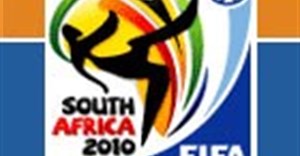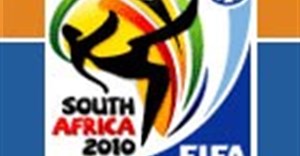Subscribe & Follow
#CannesLions
- The new standardCarl Willoughby
- All the South African winnersDanette Breitenbach
Trending
-

-
 Temu app considered malicious malware in new US lawsuit [Updated]Lindsey Schutters
Temu app considered malicious malware in new US lawsuit [Updated]Lindsey Schutters -

-

-
 #YouthMonth: Meet Tribeca Public Relations new facesKarabo Ledwaba
#YouthMonth: Meet Tribeca Public Relations new facesKarabo Ledwaba -

Jobs
- Broadcast Media Planner Rosebank
- Paid Social Media /Campaign Specialist Johannesburg
- Digital Account Director Rosebank
- Junior Administrative Assistant Cape Town
- Sport Reporter - Rugby and Cricket Johannesburg
- Team Lead Cape Town
- Graphics Designer - 2D/3D Motion, Print and Digital Johannesburg
- Managing Editor London, Great Britain (UK)
- Chief Sub-Editor London, Great Britain (UK)
- Mid Weight Journalist Johannesburg
Reporting on "the other side of the moon"
Nevertheless, both the BBC and Reuters duly demonstrated changes in their reporting focus at the International Media Forum held last week at the Sandton Convention Centre in Johannesburg. South Africa has also had a huge share of this reportage, as these two major media organisations have their biggest offices in Africa, in Johannesburg.
Barry Moody, Reuters Africa editor, told delegates that his organisation started to cover Africa in the 70's and it has, over the past few years, increased this coverage by 40%. Reuters has at least 190 journalists across the continent - 90% are Africans - and four new bureaux representing four African regions: Algiers (North Africa), Lagos (West Africa), Nairobi (East Africa) and Johannesburg (Southern Africa).
Reuters also has one full office in Harare, Zimbabwe, run mostly by Zimbabwean journalists. Moody also said that Reuters does train African journalists in a bid to empower them.
The business of South Africa
Reuters' coverage of South Africa has come a long way. As the country's political landscape started to change, so did the organisation's change of strategy. Moody said that almost 90% of their stories about South Africa are business-related.
"Most of our stories about South Africa are economic news," he said. "South Africa is the only country in Africa whose economy has a resemblance with G8 economies. There is a huge interest overseas on this country. We have 650 economic clients, and this shows the economic dynamism of this nation."
Moody said he is proud of the way his organisation covers the continent and South Africa despite many Africans' perception that foreign media is hostile to Africa. However, he deplored the absence of fresh pictures and the refusal of many managers to appear on camera. "We find it more difficult to get information out of South Africa than out of communist China," he said, adding that top businessmen's categorical refusal to appear on camera is frustrating and regrettable.
Donald Dodd, BBC News business and economics editor, said that the BBC has also extensively covered South Africa's business stories, showing some footage to delegates to prove critics wrong. Footages included the story about the mining industry where at least two-third of the workforce is suffering from HIV/Aids, black empowerment, the wine industry in the Cape region and the emerging black bosses in the tourism industry, in which one of the interviewees claimed that it is still too 'lily-white', 12 years after the dawn of democracy.
Business coverage at the BBC is big business. Overall the organisation has 150 business journalists, 11 hours of TV and radio daily, four TV networks including BBC World, four radio networks, including World Service Radio and 40 radio stations across the UK.
Furthermore, while concerns mount about the grim picture of Africa portrayed by foreign media, the BBC seems unperturbed about these allegations. According to Dodd, what the BBC is interested in in South Africa are stories about the Mandela legacy, reconciliation and development, Aids, South Africa's role on the continent, job creation, investing in South Africa, Soweto, and trade and WTO.
Business over the decades
The 1970s were about strike, union power and the end of centre left political consensus. The 1980s were about popular capitalism and the 'greed is good' culture. The 1990s were about the growth of services and the collapse of manufacturing and the 2000s are about globalisation and Web 2.0.
The new news agenda:
The BBC's advice to South African business people willing to deal with the organisation is as follows:
1. Be clear about what the story is.
2. Understand our output.
3. Think through the treatment.
4. Give us good access to your key people.
5. Cultivate good relations with our correspondents.
6. Do not overload us with phone calls and faxes.
7. Be patient and flexible.
8. Deliver.
9. Do not oversell the story.
For more information on the conference, log on www.internationalmediaforum.com.











